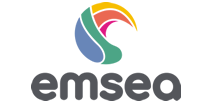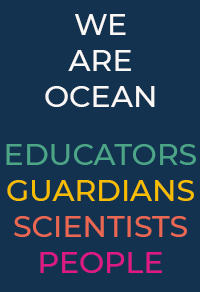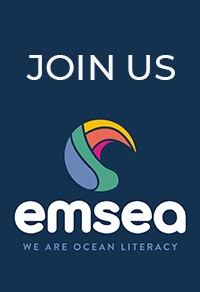
We are thrilled to announce that our annual conference will take place in Ostend, Belgium, 17-19 September 2025. This year’s event is a special occasion as we are co-organizing it with esteemed partners who have been instrumental in advancing ocean literacy across Europe.
We are honored to collaborate with the Flanders Marine Institute (VLIZ), one of the hosts of EMSEA and initiator of the very first Conference on Ocean Literacy in Europe, held in Belgium in 2012. Joining us are the EC marine data service EMODNET, and European Atlas of the Seas whose Secretariat also implements the EU4Ocean Platform that unites organisations in ocean literacy across Europe and beyond, and EUROGOOS, a key player in ocean data and literacy initiatives.
The EMSEA 2025 confernece is endorsed as a UN Ocean Decade Activity. Read more about it here.
Together, we aim to build on these foundations to deliver an inspiring and impactful conference.
Registration and event details are available here
Discover the program here
Fellowships for students and young professionals
Thanks to the support of the National Decade Committee of Flanders, as part of the UN Ocean Decade, five fellowships will be awarded to students or early-career ocean professionals (ECOPs) to attend the conference.
Learn more about this opportunity here.
ABSTRACT TOPICS
During the EMSEA Annual Conference 2025 we will focus the presentations and panels on the following topics:
- OCEAN LITERACY AND BLUE ECONOMY
Ocean literacy is essential for the success of the sustainable blue economy, as it equips individuals and stakeholders with the knowledge needed to make informed decisions about sustainable resource utilization, conservation, and economic development. In this session we look for abstracts showcasing different practices and initiatives that align the economic potential of the ocean with a profound understanding of their ecosystems, fostering sustainable blue economy and responsible resource management. Some examples are integration of ocean literacy principles into blue economy strategies, case studies on sustainable practices within blue economy sectors, the role of education in promoting blue economy awareness and engagement, innovative technologies and methodologies contributing to both ocean literacy and the blue economy, partnerships and collaborations for fostering responsible development within the blue economy, etc.
- OCEAN LITERACY IN THE NORTH SEA & BALTIC SEA
The North Sea and Baltic Sea regions are hubs of economic activity, ecological significance, and policy development, making ocean literacy a crucial factor in shaping sustainable marine futures. This session invites abstracts that explore ocean literacy initiatives, research, and case studies specific to these seas. We welcome contributions on regional approaches to ocean literacy, cross-border collaborations, stakeholder engagement in marine governance, educational and outreach programs tailored to the North Sea and Baltic Sea contexts, and the role of ocean literacy in addressing regional challenges.
- OCEAN LITERACY AND EDUCATION
Session on ocean literacy and education brings together educators, researchers, and practitioners to share insights, innovations, and best practices that enhance understanding and appreciation of the oceans through educational initiatives. In this session we welcome abstracts about approaches to integrating ocean literacy into formal and informal education, projects integrating and promoting ocean literacy among different educational stakeholders, educational technology and digital resources advancing ocean literacy, interdisciplinary collaborations between educators, scientists, and policymakers, evaluation and assessment of ocean literacy programs in educational settings, etc.
- FUTURE OF OCEAN LITERACY
As ocean literacy evolves, it is essential to anticipate emerging trends, challenges, and opportunities that will shape its future. This session seeks abstracts that reflect on the next steps for ocean literacy in science, education, policy, and society. Topics may include the role of artificial intelligence and digital tools in advancing ocean literacy, the integration of ocean literacy into climate action and global sustainability efforts, policy frameworks that support ocean literacy at national and international levels, the role of youth and citizen engagement in shaping the future of ocean literacy, and innovative strategies for ensuring ocean literacy remains relevant in a rapidly changing world.
- OCEAN LITERACY AND ADVOCACY
Advocacy plays a vital role in advancing ocean literacy, turning knowledge into action and fostering a society that values and protects the ocean. This session invites abstracts highlighting effective advocacy initiatives and strategies that promote ocean literacy. We welcome contributions on the impact of ocean literacy in influencing marine policy and decision-making, the role of NGOs and grassroots movements in ocean advocacy, best practices for raising awareness, and collaborations between researchers, educators, and advocates to drive meaningful change.
- OCEAN LITERACY RESEARCH & DATA
Ocean literacy is emerging as a dynamic research field, exploring public awareness, knowledge, attitudes, and behaviors related to the ocean. This session focuses on various dimensions of ocean literacy, including methodological innovations in its assessment, its impact on individual and community actions, and cross-cultural and interdisciplinary approaches. A special emphasis will be placed on the role of ocean data—how access to and engagement with ocean data can enhance understanding, inform decisions, and support more ocean-literate societies.
7. OPEN SESSION
You have a story related to ocean literacy that you want to share but it doesn't fit any of the topics? Then the Open session is for you. Submit your abstract here!
EMSEA 2025 Organizers and Partners:




